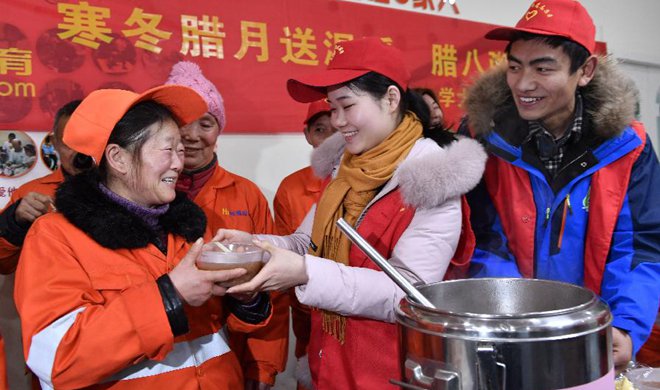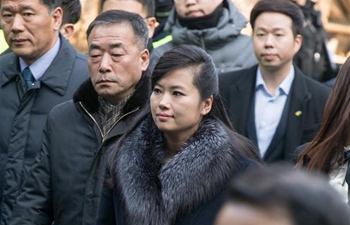BEIJING, Jan. 23 (Xinhua) -- A Beijing political advisor has proposed that ivory carving factories be converted into non-profit research institutions to pass on the cultural heritage after China imposed an ivory trading ban at the end of 2017.
The institutions can undertake repairs of ivory antiques and research and training of carving skills instead of producing carvings for commercial sale, Song Weizu, member of the Beijing Municipal Committee of the Chinese People's Political Consultative Conference, said at the ongoing annual meeting of the committee.
"For example, the Forbidden City has a large amount of ivory antiques that need professional repairs," said Song, also former vice president of Beijing Arts and Crafts Association, adding that the government should connect the institutions with cultural heritage protection organizations.
China's State Forestry Administration announced that China had banned commercial processing and sale of ivory as planned by the end of 2017, a commitment to protect wild animals.
The ban has affected 34 processing companies and 143 designated trading venues, all of which have suspended operations, according to the administration.
"Cultural authorities should help with the reassignment of ivory carving masters and other practitioners in the industry," said a 2016 document issued by the State Council.
Song advised the government to assign a designated department to govern the institutions, approve their establishment, and also legitimize the inheritance of ivory carving skills.
Ivory carving was listed as state-level intangible cultural heritage in 2006. It saw its peak in the Qing Dynasty (1644-1911), with Beijing in the north and Guangzhou in the south the two ivory-carving centers at that time.
Carved ivory, together with cloisonne, jade and lacquerware, are considered Beijing's top four traditional artwares.
"We support the government's act to protect wild animals, however, we cannot afford to loose this intangible cultural heritage," Song said.

















